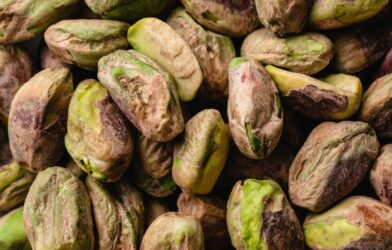At any given moment, your gut is home to trillions of microbes—a bustling community that helps you digest food and fight off illness. But a new study suggests these tiny tenants may also be a secret accomplice in cancer. Researchers in Croatia and Germany have uncovered a disturbing connection, finding that certain gut bacteria can transform a harmless chemical into a potent cancer-causing agent. This discovery doesn’t just add a new piece to the complex puzzle of what causes cancer; it puts a spotlight on our own bodies as a potential catalyst for the disease.
The findings, published in the journal Nature, shift our understanding of how environmental pollutants can affect our health. For a long time, the focus has been on the substance itself and how our bodies process it. But this new research reveals that our gut microbiome—the entire collection of bacteria, viruses, and fungi living in our digestive tract—can directly increase our vulnerability to certain cancers.
A Gut-Wrenching Discovery
Scientists at the University of Split and the European Molecular Biology Laboratory used a common laboratory model to study cancer: mice exposed to a chemical called N-butyl-N-(4-hydroxybutyl)-nitrosamine, or BBN for short. BBN is a type of nitrosamine, a family of compounds found in tobacco smoke. When given to mice, BBN reliably leads to bladder cancer.
The experiment was set up with two groups. The first group of mice was given BBN in their drinking water. The second group received BBN along with a strong antibiotic cocktail designed to wipe out 99.9% of their gut bacteria.
The difference in outcomes was staggering. A striking 77% of the mice with their gut bacteria intact developed cancerous changes in their bladder. In sharp contrast, a remarkable 81% of the mice who had their gut bacteria depleted were completely protected from the disease. This dramatic finding pointed to one clear conclusion: the gut bacteria were somehow making the cancer happen.
The Gut’s Role in a Chemical Transformation
To figure out exactly what was going on, the researchers dug deeper. They discovered that instead of simply being broken down by the liver and flushed from the body, the BBN chemical was being chemically altered by the gut bacteria. This process, known as biotransformation, turned BBN into a different, and far more dangerous, chemical called BCPN.
This newly formed BCPN was not only more toxic, but it was also more likely to cause what are called DNA adducts, or damage to the DNA in the bladder’s lining. This is a critical step in the development of cancer. Mice with a normal gut microbiome had significantly higher levels of this dangerous BCPN in their bladders. The mice that had been given antibiotics had almost no BCPN present. The study identified specific bacterial strains, including certain types of E. coli, as the culprits behind this toxic transformation.
The researchers also tested human fecal samples and found that about six out of every ten samples showed the same ability to convert BBN into the more potent carcinogen. This finding suggests that a person’s unique gut microbiome could be a determining factor in their personal risk for certain chemically-induced cancers.
Looking to the Future of Cancer Prevention
This research introduces a powerful new variable in the complex equation of cancer risk. It’s not just about a person’s exposure to pollutants or their genetic makeup. Our own gut bacteria could be a missing piece of the puzzle, acting as a crucial intermediary between the outside world and our internal health.
It’s important to remember that cancer is a disease with many potential causes. This study does not mean that antibiotics are a universal cure or prevention method. Instead, it opens a door for more research into how our individual microbiomes influence how we respond to environmental threats, which could one day lead to better methods for assessing cancer risk and developing new prevention strategies. The path to a healthier future may very well begin with understanding the secret world living within us.
Paper Summary
Methodology
The study used a mouse model to investigate the role of the gut microbiome in chemically-induced cancer. Mice were given the carcinogen BBN, either alone or with antibiotics to deplete their gut bacteria. The researchers also used human gut samples to see if the same chemical reaction occurred in a lab setting and in “humanized” mice, which are germ-free mice colonized with human gut bacteria.
Results
The mice with their gut bacteria intact had a much higher rate of bladder cancer. The researchers found that gut bacteria metabolize the BBN carcinogen, converting it into a far more dangerous chemical, BCPN. This conversion was also observed in human gut samples. The study identified certain bacterial species, including Escherichia coli, as responsible for this transformation.
Limitations
The primary limitation is that the study was conducted in mice, and more research is needed to determine the full effects in humans. The authors also note that a person’s microbiome is just one of many factors that can contribute to cancer.
Funding and Disclosures
The study was conducted by researchers from the University of Split School of Medicine, Croatia, and the European Molecular Biology Laboratory (EMBL) in Heidelberg, Germany.
Publication Information
The paper, titled “Gut microbiota carcinogen metabolism causes distal tissue tumors,” was published in the journal Nature on July 31, 2024.












